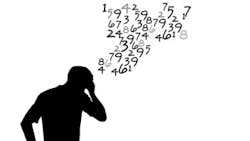Thursday Troubleshooter: Confusion about codes for implant maintenance, denture cleaning
QUESTION: I’m a hygienist with a question about implant care and cleaning of dentures and partials. Can we use a denture cleaning service such as D9932, D9933, D9934, or D9935, without implants being placed? The code for same-day implant maintenance is D6080. Is it the same for a healthy implant? Also, is 6081 for peri-implantitis or peri-mucositis?
ANSWER FROM KATHY S. FORBES, BS, RDH, Professional Dental Seminars Inc:
You’ve brought up a very familiar, yet confusing topic. The procedure codes for implant maintenance and care are minimal in the “CDT 2021 Current Dental Terminology” manual and do not reflect all of the possible combinations of clinical scenarios. Submissions related to expanding the implant procedure codes have been passed along to the ADA Code Maintenance Committee for the past four years, but they have not been approved. Let’s review what is available when it comes to cleaning of dentures and partials, as well as implant care and maintenance.
There are four procedure codes for cleaning complete dentures and partial dentures that have been around since CDT 2016:
1. D9932—cleaning and inspection of removable complete denture, maxillary
2. D9933—cleaning and inspection of removable complete denture, mandibular
3. D9934—cleaning and inspection of removable partial denture, maxillary
4. D9935—cleaning and inspection of removable partial denture, mandibular
The descriptor for each of these states, “This procedure does not include any adjustments.” There are separate procedure codes if any adjustments are made. Note that there is no delineation about the prosthesis being implant-supported or not so these procedure codes will work for both.
Prior to CDT 2021, there were no procedure codes specifically meant for “cleaning” implants. The prophylaxis procedures were amended to include implants.
• D1110 prophylaxis—adult
Descriptor: Removal of plaque, calculus, and stains from the tooth structures and implants in the permanent and transitional dentitions. It is intended to control local irritational factors.
• D1120 prophylaxis—child
Descriptor: Removal of plaque, calculus, and stains from the tooth structures and implants in the primary and transitional dentition. It is intended to control local irritational factors.
There are only two procedure codes specifically for implant maintenance that are more specific as to when they would be used. The first procedure code to consider is:
• D6080—implant maintenance procedure when prostheses are removed and reinserted, including cleaning of prostheses and abutments.
Descriptor: This procedure includes active debriding of the implant(s) and examination of all aspects of the implant system(s), including the occlusion and stability of the superstructure. The patient is also instructed in thorough daily cleansing of the implant(s). This is not a per implant code and is indicated for implant supported fixed prostheses.
It is important to note that for this procedure code to be used, the prostheses must be “removed and reinserted.” A clinician cannot simply debride an implant and not remove the prostheses, which can be removed.
Example: A patient has a full maxillary complement of teeth that was determined to be clinically healthy (according to “AAP Classification of Periodontal and Peri-implant Diseases and Conditions”) and an implant supported mandibular complete denture. Your treatment plan would include performing a D1110 (adult prophylaxis), D6080 (implant maintenance procedure when prostheses are removed and reinserted, including cleaning of prostheses and abutments), and D9933 (cleaning and inspection of removable complete denture, mandibular).
The second procedure code to consider is:
• D6081—scaling and debridement in the presence of inflammation or mucositis of a single implant, including cleaning of the implant surfaces, without flap entry and closure.
Descriptor: This procedure is not performed in conjunction with D1110, D4910, or D4346.
This procedure is limited to treatment of a single implant where the tissues show evidence of inflammation or mucositis. It cannot be performed at the same time as a D1110 adult prophylaxis, D4910 periodontal maintenance, or D4346 scaling in the presence of generalized moderate or severe gingival inflammation—full mouth, after oral evaluation. Note that this procedure code excludes treating peri-implantitis.
As you can see, there are limited specific procedure codes available when treating patients with implants. The next best thing is the following implant services procedure code, which states:
• D6199—unspecified implant procedure, by report.
Descriptor: Use for a procedure that is not adequately described by a code. Describe the procedure.
The ADA Code Maintenance Committee meets every March to review code change submissions. The DentalCodeology Consortium continues to submit change requests related to current procedures as well as introduces new procedure codes for consideration. For more information, contact dentalcodeology.com.
More popular Troubleshooters
Practice takes back promises on PTO, insurance, and holidays
Lid on or off the ultrasonic cleaner while running?
Snarky Facebook comments and HIPAA violations
Don't be shy! If YOU have a tough issue in your dental office that you'd like addressed, send it to [email protected]. for the experts to answer. Remember, you'll be helping others who share the same issue. Responses will come from various dental consultants, as well as other experts in the areas of human resources, coding, front office management, and more. These folks will assist dental professionals with their various issues on DentistryIQ because they're very familiar with the tough challenges day-to-day practice can bring. Inquiries will be answered anonymously here on DIQ.
About the Author
Team Troubleshooter
This column features questions from everyday people who work in dental practices, who have issues they would like addressed by the experts. It no longer runs regularly, but the questions sent in the past still apply to dental practices today. Search "Troubleshooter" on DentistryIQ to read more.
